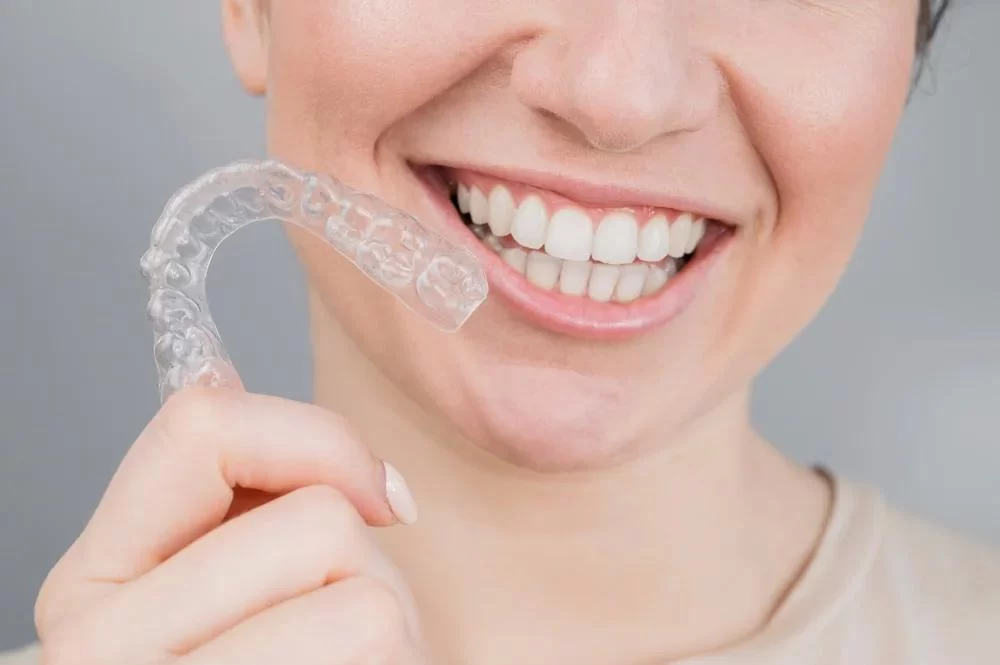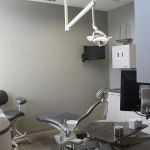
Dental Care Tips for Adults with Special Needs: Maintaining Healthy Smiles
Taking care of our teeth is essential at any age, but it becomes even more crucial when you're looking after the dental health of adults with special needs. Over the years, I’ve come to realize that dental care for adults with disabilities requires more than just routine brushing and flossing. Whether the individual has physical, intellectual, or developmental disabilities, the approach to dental care often needs to be customized. I’ve seen firsthand how a lack of awareness or insufficient dental care can lead to serious health problems, but I’ve also learned some incredibly helpful tips that have made a huge difference in oral hygiene for those I care for. In this article, I’ll share the insights and dental care tips I’ve picked up over time to help ensure that adults with special needs can maintain a healthy smile, regardless of the challenges they face.
1. Understanding the Unique Dental Care Needs of Adults with Special Needs
When it comes to dental care for adults with special needs, one size definitely does not fit all. There are a variety of factors to consider, such as the individual’s ability to perform self-care, the potential for medical conditions affecting oral health, and the medications that may cause oral side effects. I’ve found that understanding these needs is the first step to providing effective care.
1.1. Physical Disabilities and Their Impact on Oral Health
For adults with physical disabilities, particularly those who have limited mobility, maintaining oral hygiene can be a real challenge. Brushing teeth may be physically difficult, or some may not have the hand-eye coordination to do it effectively. I’ve worked with caregivers to find solutions, like electric toothbrushes with larger handles, or even special tools that make brushing easier. Some individuals may also struggle to visit a dentist regularly due to transportation or physical constraints. That’s why it’s important to create a consistent dental care routine that they can manage or that a caregiver can help with.
1.2. Intellectual Disabilities and Their Impact on Dental Health
Adults with intellectual disabilities often face challenges with understanding the importance of oral care and how to execute it properly. For instance, some might not understand the cause-and-effect relationship between brushing and preventing tooth decay. I’ve noticed that education plays a key role in helping these individuals maintain their oral hygiene. Visual aids, easy-to-understand charts, and even interactive methods like videos can be effective in making dental care more relatable. I also make sure to emphasize a consistent routine so it becomes second nature.
1.3. Medications and Their Side Effects
Many individuals with special needs take medications that can have negative effects on their oral health, such as dry mouth, which can lead to an increase in cavities and gum disease. As someone who’s worked closely with caregivers, I know that ensuring proper hydration and using saliva substitutes can help mitigate this issue. Additionally, some medications can lead to gum overgrowth or increased sensitivity, making regular dental check-ups essential for monitoring these potential problems.
2. Effective Dental Care Strategies for Adults with Special Needs
Maintaining dental hygiene for adults with special needs requires patience, consistency, and a tailored approach. Based on my experience, I’ve found several strategies that make dental care easier and more effective for individuals with disabilities. These strategies aim to reduce the likelihood of oral health problems and make dental care as simple as possible for both the individual and their caregivers.
2.1. Build a Routine for Oral Hygiene
Consistency is key. For adults with special needs, especially those with intellectual disabilities, having a set schedule for brushing teeth can make all the difference. I’ve found that setting reminders or even incorporating oral care into a daily activity, like before or after meals, can help create a seamless routine. Using visual cues like charts or cards with step-by-step pictures of brushing and flossing can also help establish and reinforce the routine. I’ve seen how successful this can be when caregivers take the time to explain and follow through with it each day.
2.2. Use Tools that Make Dental Care Easier
There are several dental products designed specifically for individuals with special needs. Electric toothbrushes, for example, can be incredibly helpful for people with limited dexterity or coordination. I’ve personally used an electric toothbrush with a large, ergonomic handle to make brushing easier for someone who struggles with grip strength. Additionally, mouthwash and toothpaste specifically formulated for sensitive teeth or for combating dry mouth are helpful for many individuals with special needs. I’ve found that using flavored toothpaste can also encourage better brushing habits for those who are sensitive to tastes or textures.
2.3. Make Dental Visits Comfortable
Dental visits can be intimidating for anyone, but for adults with special needs, they may be especially stressful. Over the years, I’ve learned that preparing for the visit ahead of time is essential. I’ve had great success with introducing the idea of dental visits slowly—starting with a visit just to meet the dentist and familiarizing them with the office. Using calm, soothing language and allowing the individual to ask questions can help reduce anxiety. It’s also important to choose a dentist who has experience working with special needs patients, as they will know how to make the visit as comfortable as possible. In some cases, I’ve worked with dental professionals who offer sedation options for more complex procedures, which can be a game-changer for those with heightened anxiety.
3. Common Dental Health Issues for Adults with Special Needs
Even with the best care, there are a few dental health issues that tend to occur more frequently in adults with special needs. In my experience, being aware of these issues and addressing them early can prevent them from escalating into bigger problems.
3.1. Gum Disease and Periodontal Issues
Gum disease is one of the most common oral health problems I’ve encountered in adults with special needs. Those with limited ability to brush thoroughly are more likely to develop plaque buildup and gum inflammation. I’ve found that using floss picks or interdental brushes can help keep the gums clean. Regular visits to the dentist for professional cleanings are also crucial. The earlier gum disease is caught, the easier it is to treat, so it’s important not to ignore any signs of redness, swelling, or bleeding gums.
3.2. Tooth Decay and Cavities
Tooth decay is another concern, especially when individuals have limited access to brushing or sugary foods are involved. I’ve worked with families to limit sugary snacks and drinks, especially if the person has difficulty brushing after meals. Another strategy I’ve used is to encourage the consumption of water after eating to help rinse the mouth and wash away food particles.
3.3. Dry Mouth
Dry mouth can be a side effect of many medications taken by adults with special needs. It’s something I’ve noticed a lot in individuals who take psychiatric medications or other long-term treatments. To combat dry mouth, I recommend using saliva substitutes, encouraging frequent water intake, and even using special mouthwashes designed to alleviate dryness.
4. How to Purchase Dental Care Products for Adults with Special Needs
Finding the right dental care products is crucial for ensuring the best care. Over the years, I’ve discovered several brands and products that are specifically designed for adults with special needs. One resource that I highly recommend for caregivers is Dentistry Toothtruth, which offers a range of products for sensitive teeth, dry mouth relief, and specialized oral hygiene tools. Shopping online for these items is convenient, and I’ve found that many of these products are affordable and easy to use. I encourage caregivers to visit trusted sites to find the best products suited for their loved one’s needs.







 The Center for Pediatric Dental Care & Orthodontics4.0 (231 review)
The Center for Pediatric Dental Care & Orthodontics4.0 (231 review) Michael Brody DDS4.0 (8 review)
Michael Brody DDS4.0 (8 review) Harbor Cove Dental5.0 (191 review)
Harbor Cove Dental5.0 (191 review) All Star Dental Clinic4.0 (322 review)
All Star Dental Clinic4.0 (322 review) Woodbury Family Dentists4.0 (57 review)
Woodbury Family Dentists4.0 (57 review) ChapCare by AltaMed Medical and Dental Group — Pasadena, Fair Oaks3.0 (47 review)
ChapCare by AltaMed Medical and Dental Group — Pasadena, Fair Oaks3.0 (47 review) The Importance of Oral Health Education During Pregnancy for a Healthy Pregnancy
The Importance of Oral Health Education During Pregnancy for a Healthy Pregnancy Best Tips for Brushing Your Teeth Properly for Healthy Gums: Essential Techniques for Oral Health
Best Tips for Brushing Your Teeth Properly for Healthy Gums: Essential Techniques for Oral Health Why Skipping Dental Checkups Can Lead to Bigger Oral Health Problems
Why Skipping Dental Checkups Can Lead to Bigger Oral Health Problems Advantages of Porcelain Dental Restorations
Advantages of Porcelain Dental Restorations How Can Diabetes Cause Tooth and Gum Problems? Preventing and Managing Oral Health Issues
How Can Diabetes Cause Tooth and Gum Problems? Preventing and Managing Oral Health Issues Healthy Habits for Promoting Good Oral Health and Hygiene: Tips for a Healthy Smile
Healthy Habits for Promoting Good Oral Health and Hygiene: Tips for a Healthy Smile